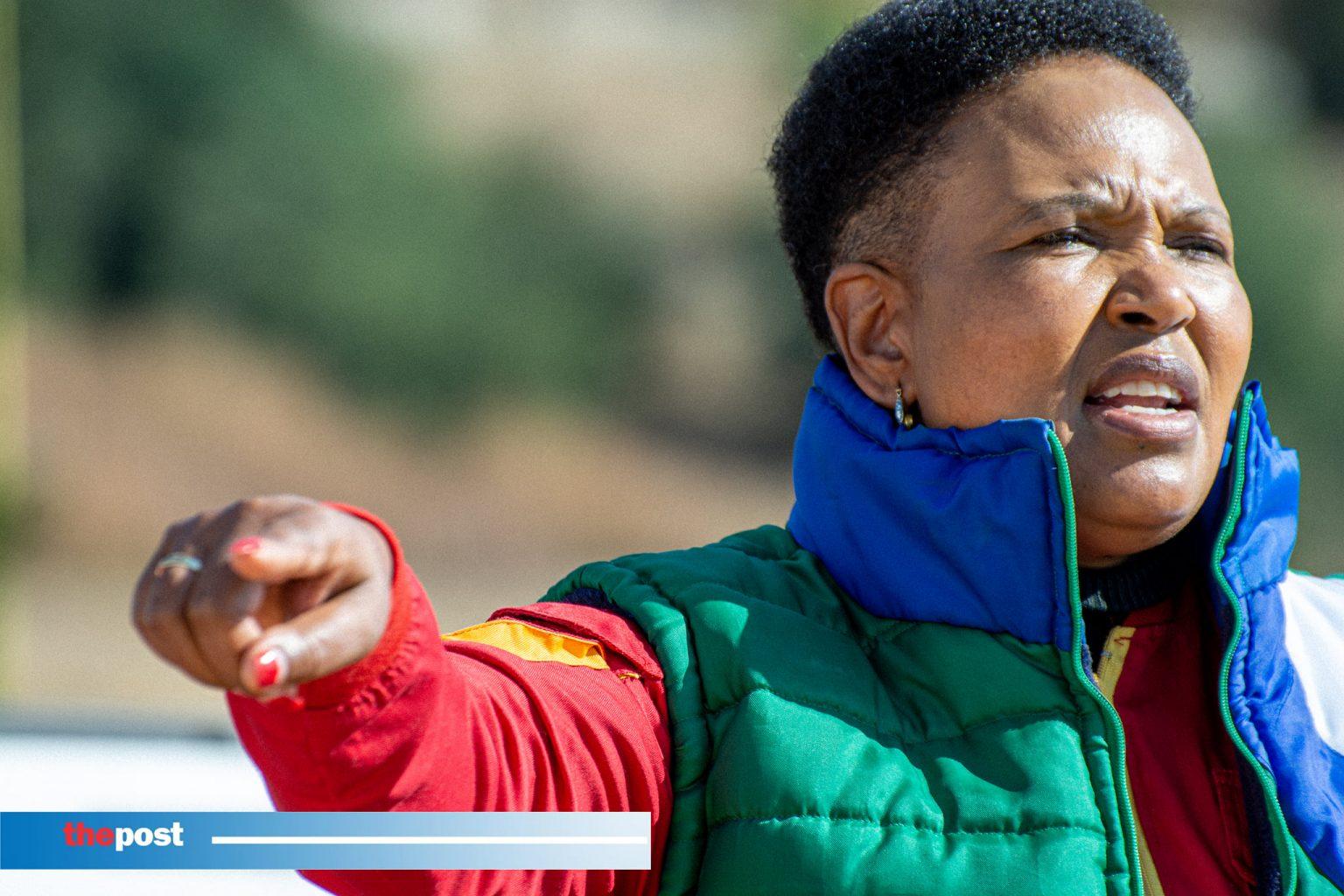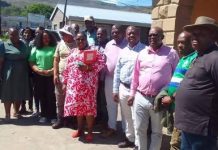Africa-Press – Lesotho. ONCE beaten twice shy. This adage is ringing true for it aptly captures the Lesotho Workers Party (LWP) leader Rose Lenea’s mood, as political parties begin the wheeling and dealing that characterises Lesotho’s pre and post-election terrain that often results in coalitions.
Fresh in Lenea’s mind is the debacle of 2006 when the LWP went into a coalition with the then newly formed All Basotho Convention (ABC) party. It proved a near fatal mistake as the labour-oriented party was reduced to the periphery of the political activity in Lesotho. The party is beginning to pick up the pieces, but it is yet to fully recover from the knock it suffered as a result of the coalition with the ABC.
The LWP had already been existence for years and enjoyed support mainly from factory workers when it allied itself with the ABC, which had just been formed after Thomas Thabane left the Lesotho Congress Party to form the outfit and was joined by several fellow ministers at that time.
Thabane went on to become Prime Minister while the LWP garnered 10 seats on the proportional representation system in a subsequent election. “We thought by uniting with the ABC we were doing a good thing for the workers only to discover later that we were taken for a rough ride,” she said.
The 48-year-old trade unionist-cum politician was part of the leadership when the party entered into the ill-fated partnership with the ABC and she doesn’t shy from taking responsibility for the mess that followed the union.
“I personally take the blame. I was passionately touting for the ABC in the belief that we were working together for the same cause.
With polls around the corner, it is a mistake that Lenea says she is determined not to repeat, so the party will resist any attempts to lure it into becoming an appendage of another party.
“They will join us, not the other way around. We have seen, we have learnt,” she said, stating that the alliance with the ABC had left the workers’ party poorer.
“We were too eager to have more say in the running of the government, with the understanding that this would work to the advantage of the labour force.
We were not politicians. We were merely ambitious trade unionists who had formed a party for the workers,” Lenea said. “The ABC leveraged on our inexperience in party politics…it was really not keen on advancing the interests of labour.
”
The deal saw the LWP leader at that time, the late Macaefa Billy, becoming secretary-general of the ABC while the ABC veteran Sello Maphalla becoming the LWP deputy leader on secondment. It had been agreed that Maphalla would help give the LWP the appearance of a political party not resembling a union.
Lenea says they believed that Macaefa would gain political experience by becoming the top administrator of the ABC, while the newly elected MPs would ensure that workers would have a strong voice in parliament.
“It was not to be,” she said.
She said ABC functionaries did not waste time putting spanners in the works to de-campaign Macaefa and make him look incompetent in the eyes of party supporters.
Relations soon soured and the parties went their separate ways. “Unfortunately we had worked hard teaching our members that the ABC was the party to vote for.
I admit that we gave our members to the ABC without us gaining anything. It is difficult for us to now convince them it was a mistake,” she said, admitting that there is a lot of hard work ahead to reclaim the party’s stature.
Lenea said after relations with the ABC soured, “we went back to the workers to explain what was happening. We told them that they had a choice to stay with the ABC or to come back to their party.
” The majority did not come back. She says in the 2017 election, the disputed leader of the Lesotho People’s Congress (LPC), Molahlehi Letlotlo, “came to us with his people”
“We only agreed that he would get a seat in parliament.
We did not ask LWP members to become members of the LPC,” she said, stating that her party’s top priority is to ensure that it enhances its role in national affairs to effectively push the agenda of labour.
“The reason we established this party was not to be in government but to contribute in the making of policies because no one was listening to us when we spoke as trade unions.
“We needed a voice of a politician but unfortunately all politicians at the time were not speaking our language,” she said, noting that aligning with Thabane, who had recently instructed the police to shoot striking workers, was ill-advised.
“You don’t understand the struggle we had convincing the workers to accept Thabane. That our marriage did not last after we had made so many sacrifices really hurt.
That’s why we had to tread carefully when the LPC’s Letlotlo later approached us,” said Lenea, who insists she is still a trade unionist at heart despite being a full-time politician.
“I don’t have any ambition to be a prime minister or even a minister one day. I am a trade unionist leading a political party of workers. What is important to me is that there are labour-friendly policies and that I can push for the execution of such policies,” she said.
Her involvement in politics has helped her understand politicians better, thereby enabling her to craft ways of dealing with them while maintaining her leaning towards trade unionism.
“I no longer get disappointed when politicians display their dishonesty. I know that for decades, I have seen them doing it against us workers.
Admitting that I am a trade unionist in the midst of politicians gives me peace of mind,” she said. Lenea was born in Ha-’Mamathe, Berea, to a staunch Catholic couple that taught her to prioritise protecting the oppressed.
After completing high school, she enrolled with a college in Bloemfontein studying for a diploma in labour law. “That’s where I started labour activism as I was exposed to trade unionism by comrades in the Free State.
When I came back to Lesotho I met Macaefa who was already neck-deep in trade unionism, especially fighting for the rights of factory workers,” said Lenea. She did not immediately work in the unions but would “help here and there with the little labour law skills I had. ”
At was at this time that she was spotted by Advocate Kananelo Mosito, who offered to become her mentor in hopes that she would further her studies in labour law.
However, Lenea was more interested in practicing as a trade unionist and not a labour lawyer. Advocate Mosito, a labour lawyer of note, is now the President of the Court of Appeal.
“Ntate Mosito played a big role in making me understand the dynamics of labour disputes,” she said, attributing her ability to win most labour disputes that she has taken up on behalf of workers to the foundation laid for her by Advocate Mosito.
“I am proud of my contribution in the labour struggle, not only for factory workers but all workers in general,” she said.
Lenea said her name may not be written on many government documents “but I know how much I contributed in their making”. She described the late Macaefa as a strong organiser in the labour movement.
“He never considered himself a politician. He always remained a trade unionist,” said Lenea, expressing her admiration of Macaefa. “It is this spirit that keeps me going.
Knowing that even if people may not see it, I am still fighting for workers… that makes me happy,” said Lenea, who represents the LWP in the National Reforms Authority that is mandated with overseeing law reforms amongst the other key national issues.
For More News And Analysis About Lesotho Follow Africa-Press






